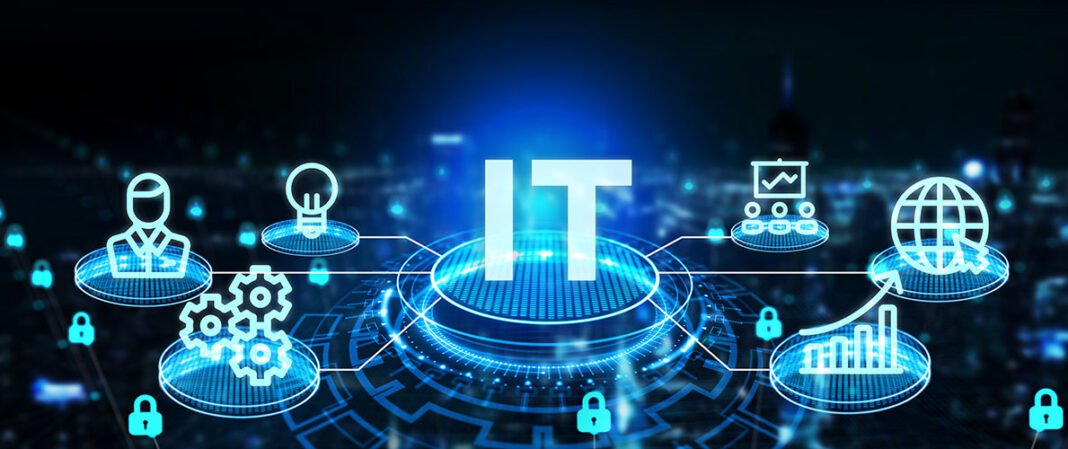Dr. Sahibzada Muhammad Usman
One of the most pressing challenges in the era of Information Technology is the digital divide. This term describes the gap between individuals, households, communities, and countries concerning their access to IT and the internet. This divide is not merely about physical access to computers and broadband but also encompasses the ability to use technology effectively due to differences in literacy and skills.
The digital divide exacerbates existing inequalities, as those without access to digital technologies are left behind in an increasingly digital world where education, job opportunities, and access to information are predominantly online. Bridging this divide requires concerted efforts from governments, the private sector, and civil society to invest in infrastructure, education, and training programs that make digital literacy accessible to all.
The environmental impact of Information Technology is another area of concern. The IT industry contributes significantly to carbon emissions, from the energy used to power data centers to the electronic waste generated by obsolete devices. The concept of sustainable IT practices has emerged as a response, focusing on reducing the environmental footprint of digital technologies.
This includes efforts to improve energy efficiency in data centers, promote recycling and responsible disposal of electronic waste, and develop greener computing technologies. Sustainable IT practices are not just an environmental necessity but also offer economic benefits by improving operational efficiencies and reducing costs. They represent a critical area of focus for ensuring that the growth of IT is compatible with the goals of environmental sustainability.
The proliferation of digital technologies has raised significant ethical concerns, particularly regarding privacy and data protection. The collection and analysis of vast amounts of personal data by tech companies have led to debates about surveillance capitalism and the commodification of personal information. High-profile data breaches and the misuse of data by third parties have highlighted the vulnerabilities in current data protection practices.
Addressing these concerns requires robust legal frameworks and regulations that protect individuals’ privacy rights while balancing the benefits of data analytics and AI. The European Union’s General Data Protection Regulation (GDPR) serves as a model for how privacy and data protection can be enforced, but global consensus and cooperation are necessary to address these issues effectively in a digital world without borders.
The impact of Information Technology on the workforce is profound, heralding a shift towards more digital and remote work environments. Automation and artificial intelligence are transforming the nature of work, making some jobs obsolete while creating new opportunities in emerging tech sectors. This shift demands a rethinking of education and training programs to equip workers with the skills needed for the jobs of the future.
Moreover, the rise of the gig economy and remote work challenges traditional employment models, offering flexibility but also raising questions about job security, benefits, and workers’ rights. Policymakers and businesses must navigate these changes to ensure that the digital economy benefits all workers and does not exacerbate economic disparities.
At its core, Information Technology is a tool for connectivity, linking people across the globe in ways that were unimaginable just a few decades ago. This connectivity has facilitated a rich cultural exchange, allowing for the sharing of ideas, traditions, and creative expressions across borders. It has the power to foster understanding and empathy among diverse populations, contributing to a more interconnected and harmonious global community.
However, this connectivity also presents challenges, such as the risk of cultural homogenization and the loss of local identities and traditions. Balancing the benefits of global connectivity with the preservation of cultural diversity is essential for ensuring that IT enriches the global tapestry of cultures rather than diminishing it.
As we stand at the crossroads of the digital age, the global impact of Information Technology is undeniable. It has the power to transform economies, revolutionize industries, and connect people and ideas in unprecedented ways. Yet, it also poses significant challenges that require thoughtful consideration and action.
The future will be shaped by how we navigate these challenges, leveraging IT for the benefit of humanity while mitigating its risks. This requires a collaborative effort involving governments, businesses, and individuals to foster an inclusive digital world that respects privacy, promotes sustainability, and ensures that the benefits of technology are shared by all.
In embracing this future, we must be guided by a vision of technology that serves as a force for good, enhancing our lives and societies. By fostering innovation, inclusivity, and ethical practices, we can harness the immense potential of Information Technology to create a brighter, more connected world for generations to come.
*The author holds a PhD in geopolitics and is the author of ‘Different Approaches on Central Asia: Economic, Security, and Energy’ with Lexington, USA.
**The opinions in this article are the author’s own and may not represent the views of The Diplomatic Insight. The organization does not endorse or assume responsibility for the content.



